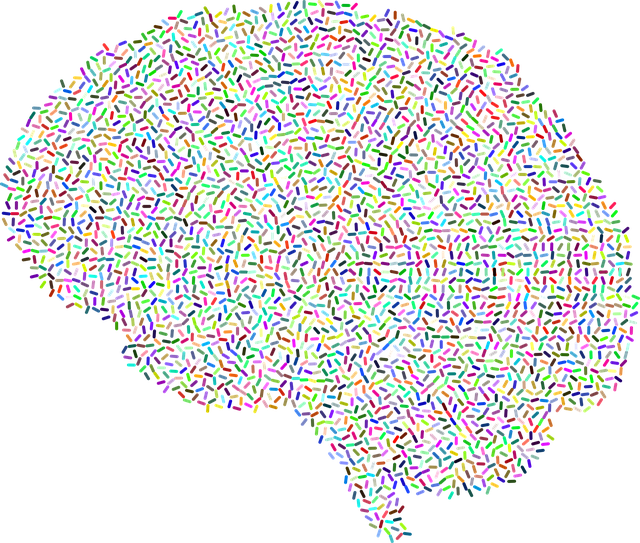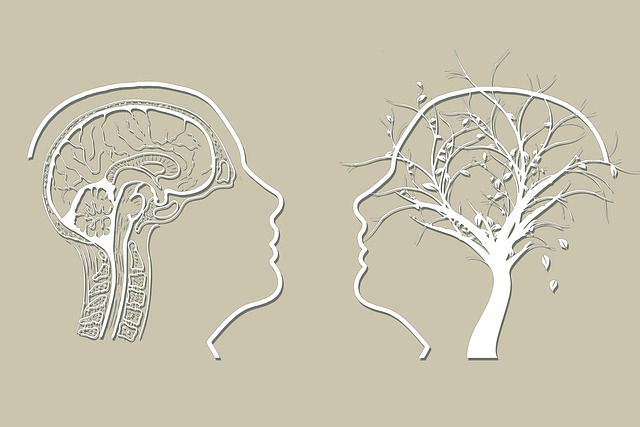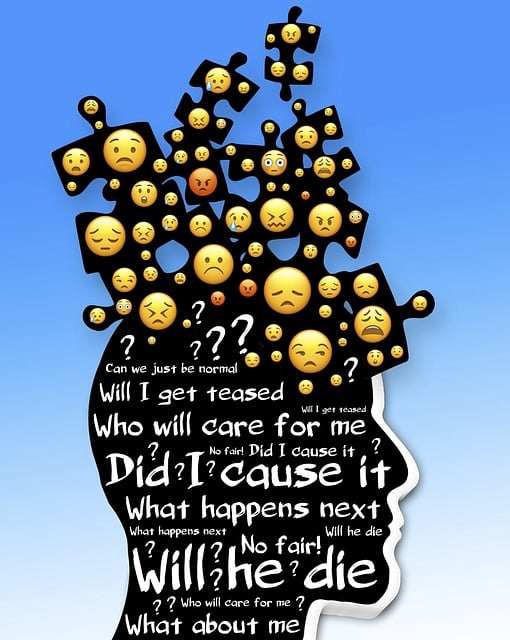Trauma significantly impacts young children's emotional and behavioral development, leading to persistent fear, anger, or withdrawal, often manifested as aggression. Early intervention through specialized therapy, particularly focusing on anger management techniques designed for children, is vital to mitigate long-term effects. Safe spaces, evidence-based therapies like CBT and play therapy, self-care practices, and mental wellness resources empower kids to process emotions, develop healthy coping mechanisms, and foster resilience against future challenges. A holistic approach combining therapy, self-care, and caregiver support ensures children gain emotional control, improve regulation, and acquire essential life skills for their well-being.
In the complex landscape of childhood development, trauma can leave profound and lasting effects on young minds. This article explores essential trauma support services tailored for children, focusing on emotional healing and resilience. We delve into the critical role of therapy in addressing trauma’s impact, particularly on younger individuals. Additionally, we present anger management techniques as a holistic approach to fostering emotional well-being. Through safe space creation and parental empowerment, this guide aims to equip caregivers with tools to support vulnerable young minds.
- Understanding Trauma and Its Impact on Young Children
- The Role of Therapy in Supporting Children's Emotional Well-being
- Anger Management Techniques for Kids: A Holistic Approach
- Building Safe Spaces: Creating Supportive Environments for Healing
- Empowering Parents and Caregivers: Fostering Resilience in Young Minds
Understanding Trauma and Its Impact on Young Children

Trauma can significantly affect young children, shaping their emotional and behavioral development. It’s crucial to understand that trauma isn’t simply a one-time event; it can be ongoing or repeated, leading to complex responses in kids. Symptoms may include persistent feelings of fear, anger, or withdrawal, which can manifest as aggression or a general sense of unease. These reactions are the child’s way of processing and trying to make sense of their experiences.
Early intervention is key to mitigating the long-term effects of trauma on young minds. Therapy for Young Children plays a vital role in this process, offering safe spaces where kids can express their feelings and learn healthy coping mechanisms. Anger management techniques, specifically tailored for children, are an essential part of this therapy, helping them understand and regulate intense emotions. Additionally, promoting Self-Care Practices and Resilience Building within these young individuals can significantly contribute to Burnout Prevention, ensuring they develop the tools to navigate future challenges with greater ease.
The Role of Therapy in Supporting Children's Emotional Well-being

The role of therapy in supporting children’s emotional well-being cannot be overstated. For young individuals who have experienced trauma, access to specialized therapy services is a lifeline that enables them to navigate and process their emotions effectively. Through evidence-based therapeutic approaches, such as cognitive behavioural therapy (CBT) and play therapy, professionals can help children make sense of their experiences, regulate their emotional responses, and develop healthy coping mechanisms.
One key aspect of therapy for young children is anger management. Childhood trauma often manifests as intense anger due to a feeling of powerlessness or loss of control. Therapists use techniques like mindfulness meditation, which has been shown to enhance emotional healing processes, to teach children how to recognize and manage their anger in constructive ways. Additionally, mental wellness podcast series production can offer accessible resources for both children and parents, promoting awareness about trauma recovery and effective strategies for maintaining mental wellness.
Anger Management Techniques for Kids: A Holistic Approach

Anger management techniques specifically tailored for kids are an essential component of trauma support services. Many young children struggle with managing their emotions, often leading to outbursts and challenging behaviors. A holistic approach that combines therapy with self-care practices can be incredibly effective in teaching these youngsters healthy coping skills development. Through interactive sessions, therapists help children identify and express their feelings constructively, fostering empathy building strategies that benefit both the child and their relationships.
By integrating anger management into trauma support, we empower kids to navigate their emotions in safe and controlled environments. This process involves encouraging self-awareness, teaching calming techniques, and promoting positive ways to communicate frustration. As children learn to manage their anger, they gain a sense of control, improve their emotional regulation, and develop essential life skills that contribute to their overall well-being and resilience.
Building Safe Spaces: Creating Supportive Environments for Healing

Creating safe spaces is a cornerstone of effective trauma support services, especially when focusing on young children’s healing. These environments must be designed to foster trust and security, allowing children to express their emotions freely without fear of judgment or retaliation. Through specialized therapy programs, such as those tailored for anger management in young children, professionals can cultivate a sense of safety that enables kids to begin the process of processing traumatic experiences.
The concept extends beyond physical spaces; it encompasses policies and practices that promote mental health education within communities. Implementing Mental Health Policy Analysis and Advocacy ensures that these safe spaces are accessible and well-resourced. Additionally, incorporating Self-Care Practices into therapy can empower both children and their caregivers, fostering resilience and a proactive approach to managing trauma’s aftermath.
Empowering Parents and Caregivers: Fostering Resilience in Young Minds

Supporting young minds that have experienced trauma is a complex task, but empowering parents and caregivers can be a game-changer. Early intervention through therapy for young children plays a pivotal role in fostering resilience. Many kids struggle with emotional regulation, especially when dealing with anger management issues, which often manifest as behavioral problems. By providing effective communication strategies and conflict resolution techniques, caregivers can help these young individuals process their traumas and develop healthy coping mechanisms.
Caregivers themselves require support to avoid burnout prevention. Learning tailored strategies for managing challenging behaviors can reduce the stress associated with caring for traumatized children. This enables parents to offer consistent, compassionate care while promoting a safe and nurturing environment that enhances emotional well-being and facilitates healing.
Trauma support services play a pivotal role in nurturing the emotional well-being of young children. By combining therapy, anger management techniques, and the creation of safe spaces, we can foster resilience and healing. Empowering parents and caregivers is essential to this process, as they are on the front line of their child’s recovery. Through holistic approaches, we can ensure that each child receives the necessary tools to navigate their emotional landscape and thrive.














